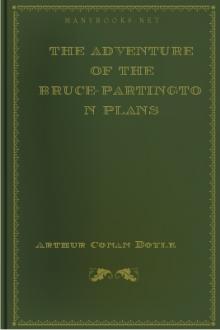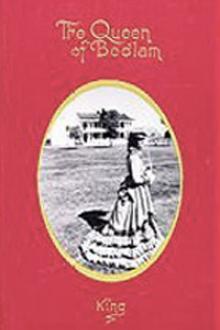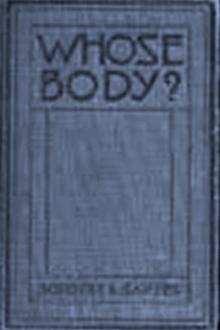Genre Mystery & Crime. Page - 17

upon the accused woman rather than upon the victim. We've got to understand the exact relations of those three people if we are to reach the truth. You saw the frontal attack which I made upon him, and how imperturbably he received it. Then I bluffed him by giving him the impression that I was absolutely certain, when in reality I was only extremely suspicious."
"Perhaps he will come back?"
"He is sure to come back. He must come back. He can't leave it where it is. Ha! isn't that a ring? Yes, there is his footstep. Well, Mr. Gibson, I was just saying to Dr. Watson that you were somewhat overdue."
The Gold King had reentered the room in a more chastened mood than he had left it. His wounded pride still showed in his resentful eyes, but his common sense had shown him that he must yield if he would attain his end.
"I've been thinking it over, Mr. Holmes, and I feel that I have been hasty in taking your remarks amiss. You are justified in getting down to the facts, whatever they may be

"Look sharp, Marco! The quadruple knot!"
Before he had even time to stand on the defensive, Rudolf Kesselbach was tied up in a network of cords that cut into his flesh at the least attempt which he made to struggle. His arms were fixed behind his back, his body fastened to the chair and his legs tied together like the legs of a mummy.
"Search him, Marco."
Marco searched him. Two minutes after, he handed his chief a little flat, nickel-plated key, bearing the numbers 16 and 9.
"Capital. No morocco pocket-case?"
"No, governor."
"It is in the safe. Mr. Kesselbach, will you tell me the secret cypher that opens the lock?"
"No."
"You refuse?"
"Yes."
"Marco!"
"Yes, governor."
"Place the barrel of your revolver against the gentleman's temple."
"It's there."
"Now put your finger to the trigger."
"Ready."
"Well, Kesselbach, old chap, do you intend to speak?"
"No."
"I'll give you ten secon

ulled up at the kerb.
The driver leant over the shining apron which partially protected him from the weather, and shouted:
"Is Miss Beale there?"
The girl started in surprise, taking a step toward the cab.
"I am Miss Beale," she said.
"Your editor has sent me for you," said the man briskly.
The editor of the Megaphone had been guilty of many eccentric acts. He had expressed views on her drawing which she shivered to recall. He had aroused her in the middle of the night to sketch dresses at a fancy dress ball, but never before had he done anything so human as to send a taxi for her. Nevertheless, she would not look at the gift cab too closely, and she stepped into the warm interior.
The windows were veiled with the snow and the sleet which had been falling all the time she had been in the theatre. She saw blurred lights flash past, and realised that the taxi was going at a good pace. She rubbed the windows and tried to look out after a while. Then she e

age to the door of her private retreat, and was about to knock when he was deterred by the words which he could clearly hear.
Chapter III
FRANCIS HAMMERTON, if we are to think of him by his true name, had not considered the probability that Mrs. Benson might not be the sole occupant of the house, his mind having been concentrated upon aspects of his position which threatened more definite hazards.
Actually, the woman whose voice he heard was a next-door neighbour, Miss Janet Brown, who had looked in with no further purpose than to return a borrowed flat-iron. But it happened that she was already informed of the exciting incident of the afternoon, and when Mrs. Benson detained her for a cup of the tea which could be cheaply obtained by adding fresh water to the leaves in the lodger's teapot, and naturally mentioned the good fortune which had walked in less than two hours before Janet was quick to see the connection bet

vents which caused the utmost excitement not only in Cornwall but throughout the whole west of England. Many of my readers may retain some recollection of what was called at the time "The Cornish Horror," though a most imperfect account of the matter reached the London press. Now, after thirteen years, I will give the true details of this inconceivable affair to the public.
I have said that scattered towers marked the villages which dotted this part of Cornwall. The nearest of these was the hamlet of Tredannick Wollas, where the cottages of a couple of hundred inhabitants clustered round an ancient, moss-grown church. The vicar of the parish, Mr. Roundhay, was something of an archaeologist, and as such Holmes had made his acquaintance. He was a middle-aged man, portly and affable, with a considerable fund of local lore. At his invitation we had taken tea at the vicarage and had come to know, also, Mr. Mortimer Tregennis, an independent gentleman, who increased the clergyman's scanty resources by taking

e crack of a shot, and the sheriffs gun dropped from his hand. All eyes turned in the direction of the entrance. There stood Texas Pete, his shooting iron smoking in his hand.
"You damn pole-cat!" he exclaimed, his eyes on Gum. "Come on, Bull; this ain't no place for quiet young fellers like us."
Bull wheeled Blazes and rode slowly through the doorway, with never a glance toward the sheriff; nor could he better have shown his utter contempt for the man. There had always been bad blood between them. Smith had been elected by the lawless element of the community and at the time of the campaign Bull had worked diligently for the opposing candidate who had been backed by the better element, consisting largely of the cattle owners, headed by Elias Henders.
What Bull's position would have been had he not been foreman for Henders at the time was rather an open question among the voters of Hendersville, but the fact remained that he had been foreman and that he had worked to such good purpose for

re specialists, but his specialism is omniscience. We will suppose that a minister needs information as to a point which involves the Navy, India, Canada and the bimetallic question; he could get his separate advices from various departments upon each, but only Mycroft can focus them all, and say offhand how each factor would affect the other. They began by using him as a short-cut, a convenience; now he has made himself an essential. In that great brain of his everything is pigeon-holed and can be handed out in an instant. Again and again his word has decided the national policy. He lives in it. He thinks of nothing else save when, as an intellectual exercise, he unbends if I call upon him and ask him to advise me on one of my little problems. But Jupiter is descending to-day. What on earth can it mean? Who is Cadogan West, and what is he to Mycroft?"
"I have it," I cried, and plunged among the litter of papers upon the sofa. "Yes, yes, here he is, sure enough! Cadogen West was the young man who was f

he doctor, bending down over her as they were walking home. "It isn't like you, Nell, to be censorious. What's she been doing?--making eyes at young McLean?"
He might have judged better than that, had he reflected an instant. He never yet had thought of his daughter except as a mere child, and he did not mean for an instant to intimate that her growing interest in the young lieutenant was anything more than a "school-girl" fancy. She was old enough, however, to take his thoughtless speech au sérieux, and it hurt her.
"Papa!" was her one, indignant word of remonstrance. She would not even defend herself against such accusation.
"I know!--I understand--I didn't mean it except as the merest joke, my child," he hurriedly interposed. "I thought you'd laugh at the idea."
But she would not speak of it, and he quickly sought to change the subject, never even asking other reason for her apparent aversion to Miss Forrest. It was true that the speedy coming of Dr. and Mrs. Gra

rtune. Sister Theresa wheedled large sums out of him, and he spent, as you will see, a small fortune on the house at Annandale without finishing it. It wasn't a cheap proposition, and in its unfinished condition it is practically valueless. You must know that Mr. Glenarm gave away a great deal of money in his lifetime. Moreover, he established your father. You know what he left--it was not a small fortune as those things are reckoned."
I was restless under this recital. My father's estate had been of respectable size, and I had dissipated the whole of it. My conscience pricked me as I recalled an item of forty thousand dollars that I had spent--somewhat grandly--on an expedition that I led, with considerable satisfaction to myself, at least, through the Sudan. But Pickering's words amazed me.
"Let me understand you," I said, bending toward him. "My grandfather was supposed to be rich, and yet you tell me you find little property. Sister Theresa got money from him to help build a school. How much

wer to the description of any they'd had."
"Nor to the description of any of the patients, I hope," suggested Lord Peter casually.
At this grisly hint Mr. Thipps turned pale.
"I didn't hear Inspector Sugg enquire," he said, with some agitation. "What a very horrid thing that would be--God bless my soul, my lord, I never thought of it."
"Well, if they had missed a patient they'd probably have discovered it by now," said Lord Peter. "Let's have a look at this one."
He screwed his monocle into his eye, adding: "I see you're troubled here with the soot blowing in. Beastly nuisance, ain't it? I get it, too--spoils all my books, you know. Here, don't you trouble, if you don't care about lookin' at it."
He took from Mr. Thipps's hesitating hand the sheet which had been flung over the bath, and turned it back.
The body which lay in the bath was that of a tall, stout man of about fifty. The hair, which was thick and black and naturally curly, had been cut and parted by